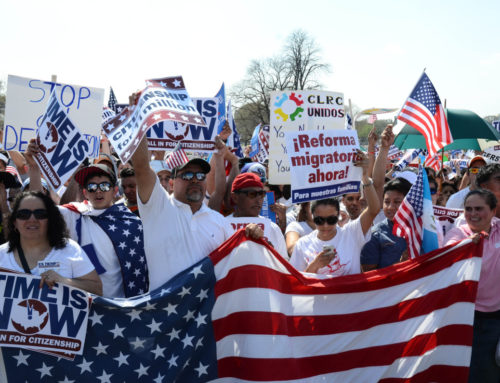Earlier this week we posted some of the most common nauralization process questions that people ask of immigration attorneys. Here is the continuation of that post:
- What Tests Will I Have to Take? During the naturalization interview, you will be required to take two tests: an English test and a civics test. The English test evaluates your ability to read, write, and speak English. Typically, your speaking ability is assessed through your responses to questions asked by the USCIS officer. For the reading and writing portions, you’ll be asked to read and write one out of three sentences correctly.The civics test, on the other hand, assesses your knowledge of U.S. government and history. You’ll be asked ten questions from a list of 100 potential questions, and you must answer at least six correctly to pass. Some individuals, such as those over a certain age or with specific disabilities, may be exempt from these tests, so ask an attorney what to expect. Failing either test could result in a delay or denial of your naturalization application, so many applicants spend extensive time beforehand preparing through practice exams.

- What Documents Do I Need for the Interview? When attending the naturalization interview, bringing all required documents will help you avoid delays in your application process. The list of necessary documents for most people includes the following:
- Your Permanent Resident Card (Green Card)
- State-issued I.D. card or driver’s license
- Passport
- Marriage certificate
- Evidence of name change
- Tax returns for the past five years
- Any additional documents that demonstrate you’ve maintained continuous residence in the U.S.
Not all of these may be necessary, especially if they don’t apply to your situation. For an easy example, no marriage certificate is required if you are not married.
- Is Changing My Name Allowed During the Naturalization Process? Yes, you can legally change your name during the naturalization process. The option to change your name is actually part of Form N-400, and you can indicate your desired new name in the appropriate section. If your application for naturalization is approved, your new name will be legally changed during the naturalization Oath of Allegiance ceremony. It’s important to note that this name change is legally binding and will be reflected on your Certificate of Naturalization. If you’re considering a name change, consult with an immigration attorney to understand the legal implications and to ensure that all corresponding documents are consistently updated.
- What Happens if My Green Card Expires During the Process? While an expired Green Card doesn’t automatically disqualify you from naturalization, it can create complications. For example, you may face difficulties with employment verification or re-entry into the U.S. after foreign travel. In most cases, it’s advisable to renew your Green Card while waiting for the naturalization process to complete. However, the renewal process also takes time and incurs additional fees. Consult an immigration attorney to evaluate the best course of action. Generally, it is better to be safe than sorry, renewing documents and authorization sooner rather than later.
- What if I Fail the Naturalization Tests? Failing the English or civics tests during your naturalization interview is not the end of the road, but it does complicate your path to citizenship. If you fail either test, you will be given a second opportunity to take that portion again, usually within 60 to 90 days of the initial interview. If you fail either test a second time, your naturalization application will be denied, and you’ll need to restart the entire process, including repaying the application fee. Given the high stakes, take the time to familiarize yourself with both tests and practice them through the resources provided by your attorney.
- What is the Oath of Allegiance? The Oath of Allegiance is the final, yet profoundly significant, step in the naturalization process. During a formal ceremony, you will swear allegiance to the United States and its Constitution, renouncing any foreign allegiances and titles. The oath signifies your commitment to the responsibilities and privileges of U.S. citizenship, including the duty to support and defend the Constitution and the laws of the United States. After taking the oath, you will receive your Certificate of Naturalization, making you an official U.S. citizen. This momentous occasion is often emotional and marks the culmination of a long, arduous journey to citizenship, a life-changing event that underscores the values and freedoms that the United States represents.
If you have furthe questions about the naturalization process, call Probinsky & Cole, Tampa and Orlando immigration attorneys.







